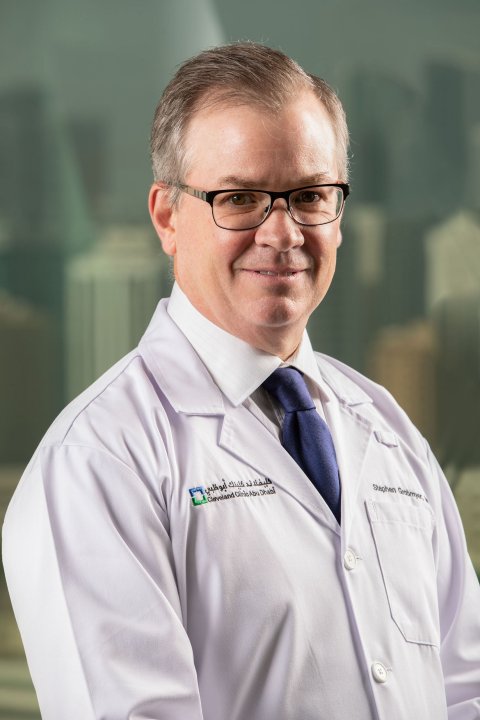News • Mammacarcinoma study
Breast cancer: finishing treatment soon after diagnosis increases survival
Research from Cleveland Clinic in the U.S. and Cleveland Clinic Abu Dhabi in the U.A.E. has found a decrease in patient survival rates when treatment options – surgery, chemotherapy and radiation – are completed more than 38 weeks from the time of diagnosis.
The observational study published in the journal Annals of Surgical Oncology, which included more than 28,000 breast cancer patients registered in the American National Cancer Database, is the largest of its kind to evaluate breast cancer survival and time to completion for all therapies. It found the treatment duration of less than 38 weeks was associated with a higher five-year survival – 89.9 percent compared to the 83.3 percent in the greater than 38 weeks treatment duration. This builds on previous research that noted poorer outcomes when there was a delay in time to treatment initiation, although time to treatment completion was not assessed in these studies.

The study’s authors point out it is important to identify the reasons for delays in treatment and where in the process they occur, and to design programs to measure and pursue optimization of time to treatment to decrease anxiety for patients and improve their chances of survival. “The biggest difference in our study from others that have looked at time to treat was that we looked at the time from diagnosis to the completion of the multimodality treatment, not only at one individual part, to identify the 38-week window to improve survival rate for patients with breast cancer,” said Debra Pratt M.D., director of the Breast Center at Cleveland Clinic Fairview Hospital, and the lead author of the study. “In breast and other cancers, patients don’t only get surgery, but may also require chemotherapy and radiation therapy,” Dr. Pratt said. “This becomes a complicated system to navigate and there are multiple reasons why delays arise in treatment being completed. This analysis helps us identify opportunities for improving care within the delivery systems.”
Other studies evaluating the time to treatment for breast cancer by individual treatment modality have concluded that the optimal time from diagnosis to first surgical treatment was less than 90 days from diagnosis; less than 120 days from diagnosis to adjuvant chemotherapy; and when chemo is administered, the radiation should start less than 365 days from date of diagnosis. The last two are consistent with Commission on Cancer’s Cancer Central Clinical Participant Registry (C3PR) quality indicators. “What we found is that the optimal time for treatment completion is 99 days shorter than C3PR quality indicators,” Dr. Pratt said. “We have so much more data now to reassess these quality indicators and determine what those metrics should be.”
What we see happen traditionally in the U.S. and even in the U.A.E. is that the patient has to visit multiple specialists [...] all of which are scheduled weeks apart and in different places
Stephen Grobmyer
The study did not allow researchers to gauge the causes for delays beyond 38 weeks, but Dr. Pratt said from experience, she can divide them into medical, personal and systemic factors. “If patients have medical issues, they may have to go through other assessments, such as cardiac clearance, which are done as a precaution,” she explained. “These are the hardest to control. Other delays are personal, for example, where the patient does not want to be seen at the first appointment available because of financial reasons or chooses to prioritize a family event over surgery.” She says medical facilities can, however, control some of the systemic factors to speed up the process. These include adequate staffing and improved systems to increase ease of access, such as making special reservations to schedule urgent assessments like metastatic surveys and breast MRI, as well as a reduction in insurance delays in approving tests required to complete pre-treatment assessments.

Stephen Grobmyer M.D., chair of the Oncology Institute at Cleveland Clinic Abu Dhabi, an integral part of Mubadala Health, and a co-author on the study, says that care must be consolidated to help patients receive treatment on time. “What we see happen traditionally in the U.S. and even in the U.A.E. is that the patient has to visit multiple specialists – first a surgeon, then a medical oncologist for chemotherapy followed by a radiation oncologist – all of which are scheduled weeks apart and in different places,” he said. “There is this phenomenon of ‘serial care,’ rather than coordinated and planned care.”
Dr. Grobmyer adds that Cleveland Clinic has tried to avoid this issue with their coordinated multidisciplinary cancer programing. For example, in preparation of the opening of its cancer tower, Cleveland Clinic Abu Dhabi opened its dedicated Breast Health Clinic last year. The facility offers targeted diagnostic testing, genetic counseling, innovative therapies and treatments, as well as reconstruction specialists and disease-specific experts to address all breast health issues, in one location and in the shortest time possible. “We are trying to anticipate the needs of the patients and plan for all their treatment from the beginning so that it is seamless, efficient and reduces their anxiety,” he said. “We have also started measuring time to treatment as a quality measure.”
Dr. Pratt said further studies to determine which type of treatment has the most delays will aid their efforts in optimizing care. “One of the data points missing in our study was the last day of chemotherapy for these patients, so we could not determine where the majority of delays occurred,” she said. “One of my hopes is to look at our patients’ data to know where the challenges lie and how we can fix them.”
Source: Cleveland Clinic
30.06.2021











